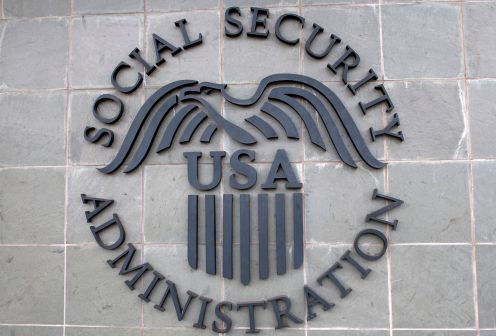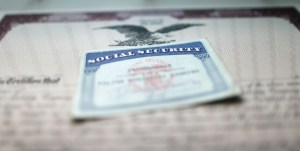A recent report by the Congressional Research Service recommends placing more restrictions on the use of Social Security numbers because of a spike in identity theft involving government documents and benefit fraud.
According to the report, dated Jan. 16, of the 369,132 identity theft complaints received by the Federal Trade Commission in 2012, the most prevalent form of identity theft was government documents or benefits fraud. And within those categories, FTC has noted “a particularly large increase” in identity theft related to tax return fraud, involving as many as 43 percent of all complaints received.
One of the strategies recommended to Congress by CRS to combat identify theft involves restricting the use of Social Security numbers. SSNs, as they are called, have become the most prevalent piece of personally identifiable information, and are used on everything from Medicare ID cards to federal grant programs. Congress has already enacted several restrictions on the use of SSNs, including forcing states to remove them from driver’s licenses, motor vehicle registrations and personal identity cards.
As of 2013, an estimated 50 million Medicare ID cards display the recipient’s SSN. And while Congress may consider forcing Medicare to adopt a new identifier, the Government Accountability Office has said such a change would cost between $255 million and $317 million.
Another policy option offered by the CRS report involves granting federal agencies with authority to curb the use of SSNs throughout the private industries that those agencies regulate.
“There are few restrictions on the use of SSNs in the private sector, and therefore the use of SSNs is widespread,” the report states. Restricting the use of SSNs or mandating that private companies use truncated SSNs in their records would help reduce the number of identity theft cases resulting from data breaches, the report states.
Cyber-criminals use personally identifiable information, such as a person’s name, date of birth and SSN, to create fake or counterfeit documents, such as birth certificates, licenses and Social Security cards. The creation of fraudulent documents has also fueled an illegal underground market in fake identities for unauthorized immigrants living in the United States, as well as fake passports for people trying to illegally enter the country, according to the report.
In September 2013, for example, three defendants pleaded guilty for their roles in “a sophisticated scheme to produce and sell high-quality false identification documents throughout the nation … generating profits of more than $3 million over several years.” They operated a company called “Novel Design,” and sold more than 25,000 fraudulent driver’s licenses throughout the nation. They even outsourced some of the manufacturing of the fake documents to entities in Bangladesh and China.






